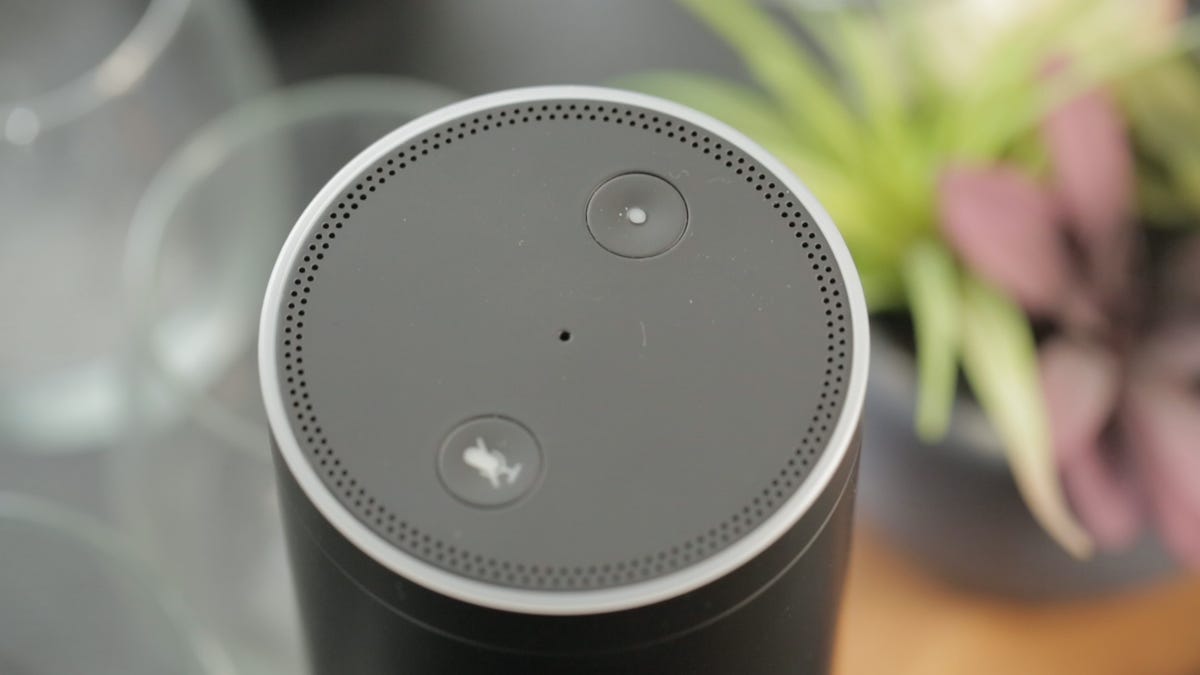Forget smaller iPhones. Where's Apple's answer to Amazon Echo?
Apple finds itself behind in the smart-home race as Amazon expands its family of Echo products.

Hey Siri, thanks for the smaller phone, but how about an Echo-like smart speaker?
Thursday's a big day in tech. Apple's iPhone SE and 9.7-inch iPad Pro go on sale. Also available are the latest products in Amazon's Echo family of smart speakers: the portable Amazon Tap and speaker attachment Echo Dot.
For many of you, it's Amazon's products and its digital voice assistant Alexa that are the big draw.
That's because the Pringles can-shaped Echo speaker has been a surprise hit due to its ability to let you ask about the weather, play NPR news, set reminders, add items to your grocery list and even order pizza for delivery.
Your home is increasingly turning into a battleground for tech giants looking to deliver you new, connected gadgets. It is part of an emerging area called the Internet of Things, which links together just about anything that plugs into an electrical outlet so they all can talk to one another. There will be an estimated 20.8 billion connected items, including cars and appliances, by 2020, according to market researcher Gartner. Thanks to the Echo and Alexa, Amazon is already playing a central role in that transition in people's homes. Apple finds itself behind the pack even though it launched Siri before digital assistants came into vogue.
Apple will need to work hard to catch up. With the Echo Dot, any speaker can gain access to Alexa. Samsung has said it might add Amazon's digital voice assistant to its $5,000 super fridge, and Ford and Toyota want to add it to their cars. Even Google has invested in the smart home, with its Nest unit selling devices like smart thermostats (which also work with Alexa).
So far, Apple just has HomeKit, a platform for developers to integrate smart home devices into its iOS mobile software. Typically, the company releases a fully formed product that combines hardware, software and services. In the case of HomeKit, it's counting on partners for the products.
"It's such a departure from how Apple normally does things," Jackdaw Research analyst Jan Dawson said. "It's an experiment on Apple's part I'd argue hasn't gone that well."
Slow progress on HomeKit
Apple revealed its HomeKit platform in 2014, which lets people control door locks, lights and other smart home gadgets with an iPhone or iPad. Apple users can control their various connected devices from one program -- even using its iOS-based digital voice assistant, Siri -- rather than switching back and forth between different apps.
But there aren't many actual products yet that work with the software. You can find a few smart power plug adapters, lighting products from Philips and Lutron, and a few thermostats that work with Siri and HomeKit right now, but Apple seems to be taking a cautious approach. It hasn't opened its smart home product family to the full breadth of household devices yet.
Apple could supercharge its efforts with an Echo-like device that ties everything together.
"It is inevitable," Dave Friedman, CEO of Ayla Networks, said about Apple creating an Echo competitor. "All the big guys compete with each other. Google has Nest, Amazon has Alexa and Apple has Siri. And Siri is already a cornerstone of HomeKit, and it will get into lots more stuff."
Friedman, whose company helps manufacturers create Internet-connected appliances, said he had no direct knowledge of whether Apple could be working on an Echo competitor but sees voice expanding into more products.
While some expect Apple to build its own version of an Echo smart speaker, the company may stay focused on the software side and Siri. Apple will likely talk about more HomeKit features at its developers conference in June, including newly supported appliances and possible ways the software could work better with the Apple TV.
Apple declined to comment on the prospect of a smart speaker.
Many expected Apple's updated Apple TV, released in October, to serve as the control center for Internet-connected appliances, and it does -- sort of. The Apple TV serves as a relay device in the home, connecting your remote iPhone to smart gadgets in the home (that share the same Wi-Fi network as the Apple TV).
The Apple TV also has voice input capability, but that comes through the device's remote. You can use the microphone built into the Apple TV's remote control to issue basic media playback commands, search for content across various streaming services, or provide voice dictation to search for apps or enter your password, per the latest software update unveiled earlier this month. But unlike Siri in an iPhone, Apple TV won't execute voice commands asking it to control HomeKit-compatible household gadgets.
For now, the center of an Apple-compatible smart home is the iPhone.
"Apple watches to see what a market looks like, then they come in and do it better," Creative Strategies analyst Tim Bajarin said. "They don't necessarily invent things. They reinvent things."
CNET's Rich Brown and Ben Fox Rubin contributed to this story.

